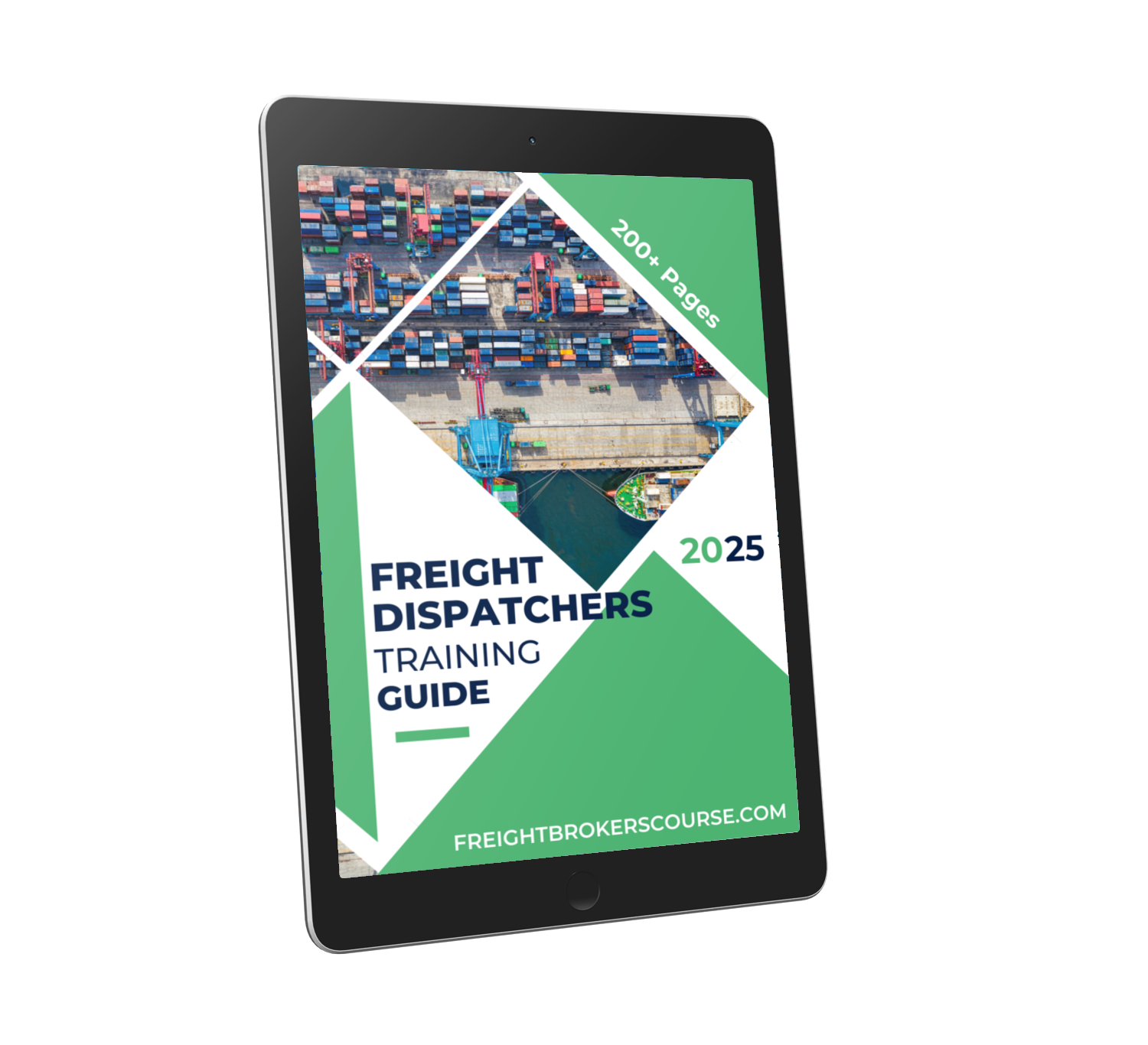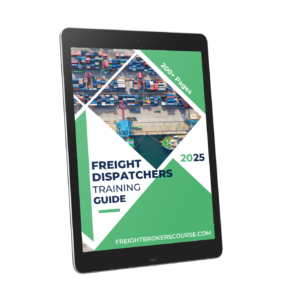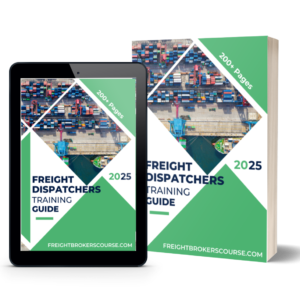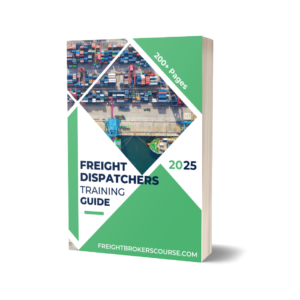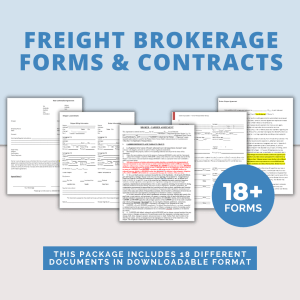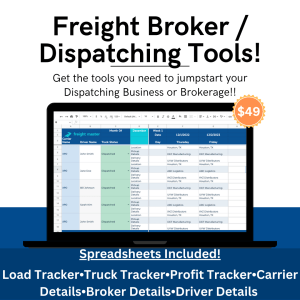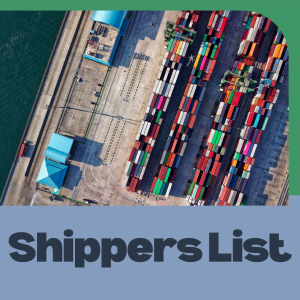Description
Dispatching
Some of the things you will learn in Freight Dispatch Training. Always be calm and speak professionally, never get into a verbal altercation with a driver while he is dispatched on your load as you don’t need to take risk of getting into a situation that could potentially turn bad.
Dispatching means the process of assigning motor carriers to your loads. Once you and your client have discussed the line-haul rate, you will have to start searching for a motor carrier willing to haul the load. There are many ways to find motor carriers. You will have to complete some formalities like signing the set-up contract, preparing the rate sheet and scrutinizing the safety ratings of the motor carrier before you can start the dispatch process. It is important to complete all the formalities to prevent any legal or financial issues at a later stage.
Add Audio Guide For $99
BASIC
Everything You Need To Become a Dispatcher!
Add Audio Guide For $99
BASIC PLUS
Ramp Up Quickly As A Dispatcher!
Add 60k Shippers List $399
ADVANCED
Every format to Train to Become a Dispatcher!
Add 60k Shippers List $399
DELUXE
Get started creating your own Indepndent Dispatching Service
What industry are you currently in?
How We Prepare You for the Freight Dispatcher Industry
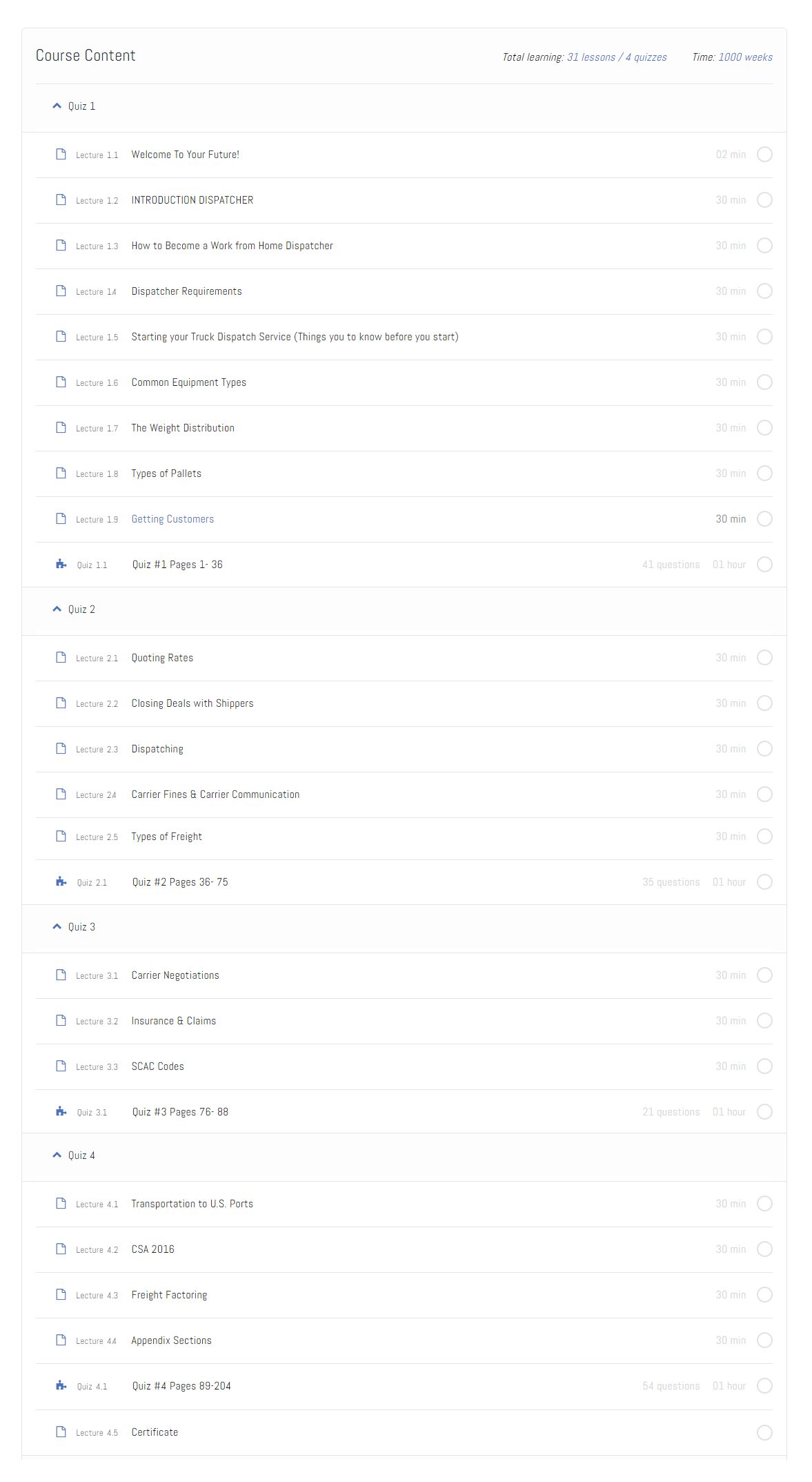
Unlock Your Career with Freight Dispatch Training!
Getting into freight dispatching has never been easier! With our comprehensive freight dispatch training course and advanced online tools, you will gain essential logistics knowledge and be far ahead of your peers who have taken dispatcher training courses elsewhere. Our curriculum is designed to provide you with the skills needed to thrive in the industry, including effective communication strategies, negotiation tactics, and problem-solving techniques. Enroll with a friend and save on your freight dispatch training journey!
As an independent dispatcher, you’ll need to understand the roles and responsibilities of a contractor. Utilizing the services of a motor carrier requires a solid ‘set-up’—this is the contract agreement between you and the carrier that outlines the terms of your working relationship. If you need help drafting this contract, it’s wise to consult a lawyer who can assist you with a sample contract form. This is especially important as contracts can impact your business’s success and ensure compliance with industry regulations.
Before you can start dispatching, you’ll encounter numerous forms and agreements that are essential to the freight dispatch training process. Understanding the purpose of these forms is vital for your success in the industry. Some key forms include the dispatch agreement, carrier packet, and rate confirmation documents. Familiarizing yourself with these documents will help streamline your operations and improve communication with motor carriers.
Moreover, it’s crucial to avoid common pitfalls that new dispatchers face. Many inexperienced dispatchers overlook the importance of maintaining accurate records and documentation. Developing strong organizational skills will not only enhance your efficiency but also safeguard against potential disputes or legal issues down the road. Our freight dispatch training program emphasizes strategies to manage documentation effectively, ensuring you stay compliant with industry regulations.
Most companies include legal terms in their set-up contracts to protect their interests. Brokers should incorporate a ‘back-end solution clause,’ often referred to as a ‘non-compete’ agreement, to prevent motor carriers from directly dealing with clients. This clause ensures that your efforts to procure clients remain protected. Should a motor carrier engage directly with your customer, they will be required to share a percentage of revenue earned from that relationship—this is crucial for safeguarding your business.
The transportation industry has its own unique ‘lingo’. If you’re unfamiliar with the terminology, navigating freight dispatch training can be challenging. For instance, do you know how much weight a truck can legally carry on tandem axles or the steering axle? Understanding these technical aspects of trucking is essential. Are you aware of the difficult states or locations to send drivers that may lead to long deadhead miles? Familiarity with these terms and concepts will help you communicate effectively with carriers and drivers, facilitating smoother operations.
Additionally, this training encompasses essential certification options that can enhance your credentials as a freight dispatcher. Obtaining relevant certifications can set you apart in a competitive job market and demonstrate your commitment to professionalism. Organizations like the Transportation Intermediaries Association (TIA) offer specialized programs that provide valuable certification for those pursuing a career in freight dispatching.
Networking is another crucial aspect of the freight dispatch training process. Building connections within the industry can lead to potential job opportunities, partnerships, and valuable insights. Our program offers networking opportunities to connect you with industry professionals, enabling you to grow your contacts and gather insights from experienced dispatchers and brokers.
Finally, staying updated with the latest trends in the freight dispatch industry is vital for success. The landscape of logistics is constantly evolving, influenced by technology and regulations. Engaging in continuous education after your initial freight dispatch training will equip you with the knowledge necessary to remain competitive and adapt to changes in the industry.
Start Your Freight Dispatch Training Today!
Are you ready to take your first step toward a rewarding career in the freight dispatching industry? Our freight dispatch training program provides a comprehensive education that prepares you for the challenges ahead. Enroll today and start your journey toward becoming a successful freight dispatcher!
This is the type of on the job information we compile into our course, to prepare you for everyday situations like this in the logistics industry, and in a demanding “spot market” industry these tools will give you the competitive edge to make quick decisions that will earn you better profits.


